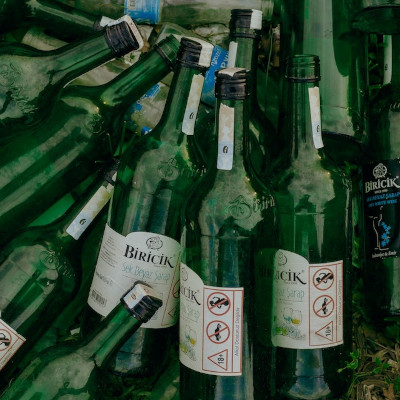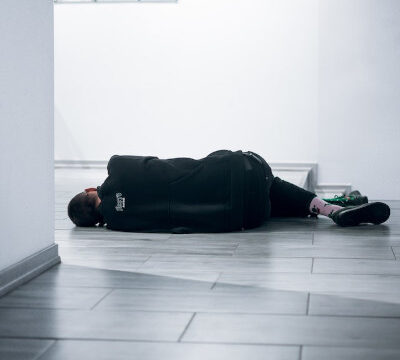
Early Signs of Binge Drinking And Preventive Techniques

Did you know about 24% of the US population struggles with binge drinking? Such drinking is seen to be common among young men and women.
Table of Contents:
Having how many drinks qualify as binge drinking
In simple words, binge drinking refers to the overconsumption of alcohol. However, who decides what level of alcohol is considered to fit in the bracket of overconsumption?
The basic definition of binge drinking refers to that level of blood alcohol concentration when it is 0.08 percent or 0.08 grams of alcohol per deciliter. This amount could be higher too. If we weigh this in terms of the number of glasses, for a female, the binge drinking level will be four glasses of alcohol or more. For a male, on the other hand, it’s going to be five or more drinks, drunk consecutively within 2 hours.
For teens or the population that falls into the younger age bracket, only 3-5 glasses of alcohol are required for the drinking to be declared as overconsumption.

How does one become a binge drinker?
Constant patterns of heavy alcohol consumption usually support binge drinking. You don’t just wake up one day and decide to be a binge drinker. It starts with small baby steps, like one more glass of alcohol or one more night out in the club. This problem is commonly felt among the younger population.
Students who face academic pressure usually turn to alcohol to blow off some steam. Alcohol is cheap and a quick fix, so the students don’t mind indulging.
If a person exceeds this binge drinking level, they may face serious consequences such as blackouts, accidental sexual behavior, and in some cases, overdoses.
The common perception is that the person who is drinking alcohol has control over their actions and their patterns. However, this is far from the truth due to the addictive nature of alcohol.
The problem is not only seen among the younger population but also among the elderly.

Lying around on the couch all day isn’t a fun task, and in times of such boredom, we consider alcohol as our friend. Nights pass by, sipping alcohol in front of the TV, and over time, this habit can escalate.
How to identify if someone is a binge drinker
A binge drinker will usually portray repeated patterns of certain behaviors that indicate their alcohol dependence.
One of these behaviors is craving alcohol the moment we wake up in the morning.
A binge drinker may get defensive if somebody raises questions about their drinking habits. This is because we subconsciously want to gatekeep this habit from others either.
Due to the high dependence on alcohol, binge drinkers will not be able to function at all if they haven’t consumed any alcohol. When we have binge drinking habits, a reduced amount of consumption will lead to feelings of nausea, shakiness, or in extreme cases, even weakness. As mentioned earlier, alcohol can become a friend over time.

This may lead to skipping parties, family dinners, or other social interactions because we don’t see their need or importance.
Ways to stop dependence on alcohol
Following are the steps to be followed to reduce alcohol dependence.
- Drinking more water or non-alcoholic beverages: This seems like a simple method, but it’s the most effective one. Sometimes, out of habit, we drink alcohol just for the sake of washing down our food at the dinner table. However, you can replace this alcohol with water and other drinks. It will do the same job for you.
- Set a limit: This limit can include only two shots per 5 hours, and as changes are seen, we can shift the per 5-hour criteria to per day. The idea here is to slowly get rid of your addiction instead of making a radical change.
- Get help: It’s always important to seek help, and this can be in the form of therapy, talking to your loved ones, or going for an alcohol detox.
The takeaway
An alcohol detox might just be the last resort in case things get too serious. Elite Home Detox offers in-home detox treatment with high-quality services and complete discretion. Our detox treatment focuses on your current habits, treating them, and developing healthy coping methods. So, get in touch with Elite Home Detox right now!
In-Home Alcohol Addiction Recovery with Elite Home Detox
Elite Home Detox brings the services of a traditional rehabilitation clinic to the comfort of a patient’s home. Since every patient’s circumstances and needs are different, our comprehensive treatment plan is tailored to the individual.
In-home alcohol addiction recovery is a modern solution for the busy, fast-paced lifestyles of today.
Personalized attention
Unlike a traditional addiction rehabilitation clinic, where patients meet in groups, in-home rehab means that our patients get dedicated, one-on-one attention.
Elite Home Detox provides a 24/7 onsite medical professional to monitor the patient, make changes to the treatment plan as necessary, and answer any questions that the patient, friends, or family may have. We are with our patients every step of the way to ensure a safe and healthy recovery with long-lasting results.
Convenient and private
Both inpatient and outpatient clinics require patients to travel to their destination. This is not only costly, but it also requires a significant amount of the patient’s time. In-home addiction rehabilitation works with the patient’s schedule, minimizing disruptions while maximizing results.
Some people may find group therapy beneficial. However, since addiction recovery is an intense and involved process, many patients prefer discretion while rehabilitating. That’s why Elite Home Detox brings our services directly to our patients for unmatched convenience and privacy.
Comprehensive, quality care
From genetics to social environment, many factors can contribute to a person developing an addiction to alcohol. These same factors need to be addressed during alcohol addiction rehab for a successful and lasting recovery. From detox to counseling that helps patients develop healthy coping mechanisms, Elite Home Detox offers the same services and quality of care as traditional rehab clinics.
Our team is thoroughly trained in addiction recovery, and every program is overseen by our medical director to ensure quality care.


